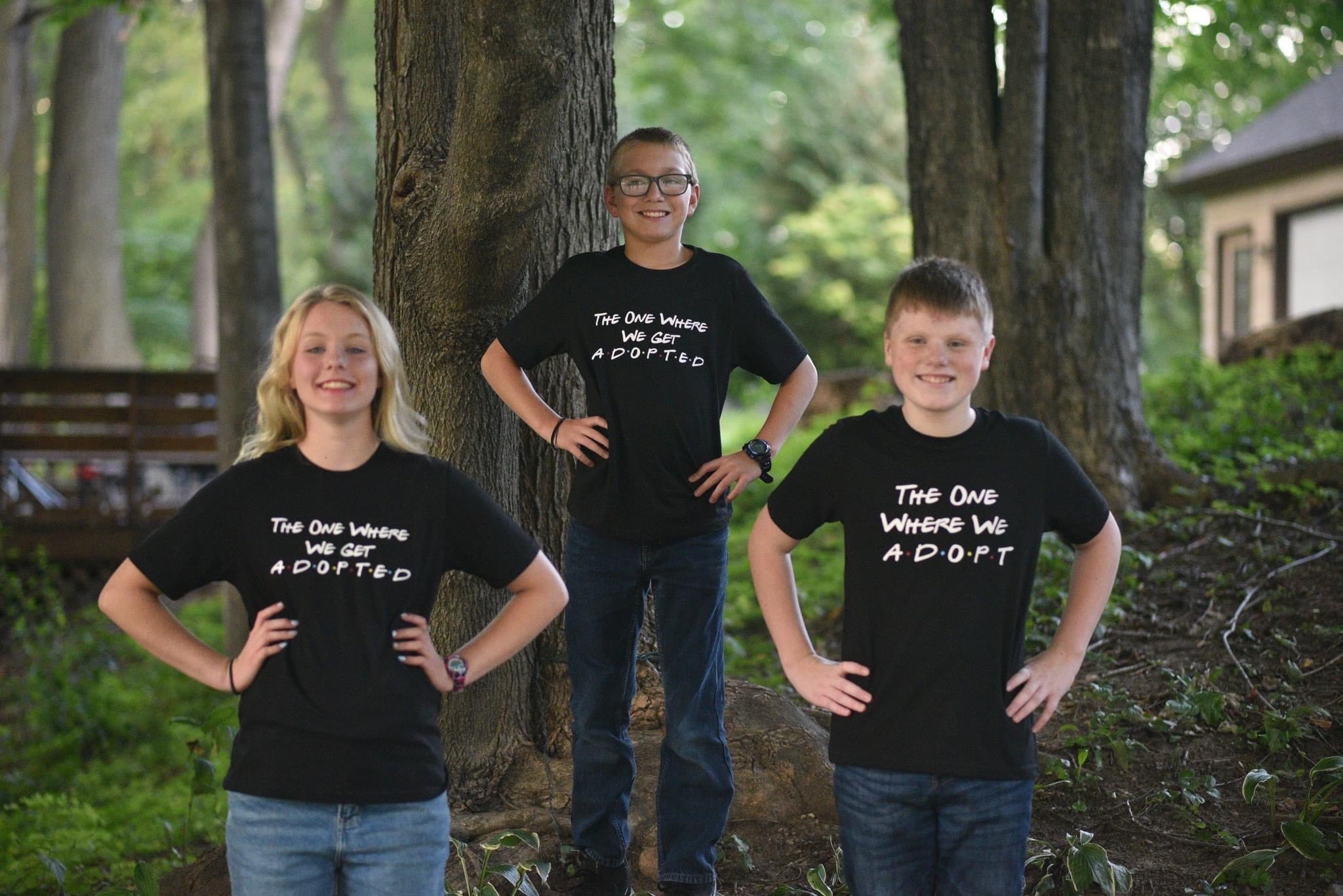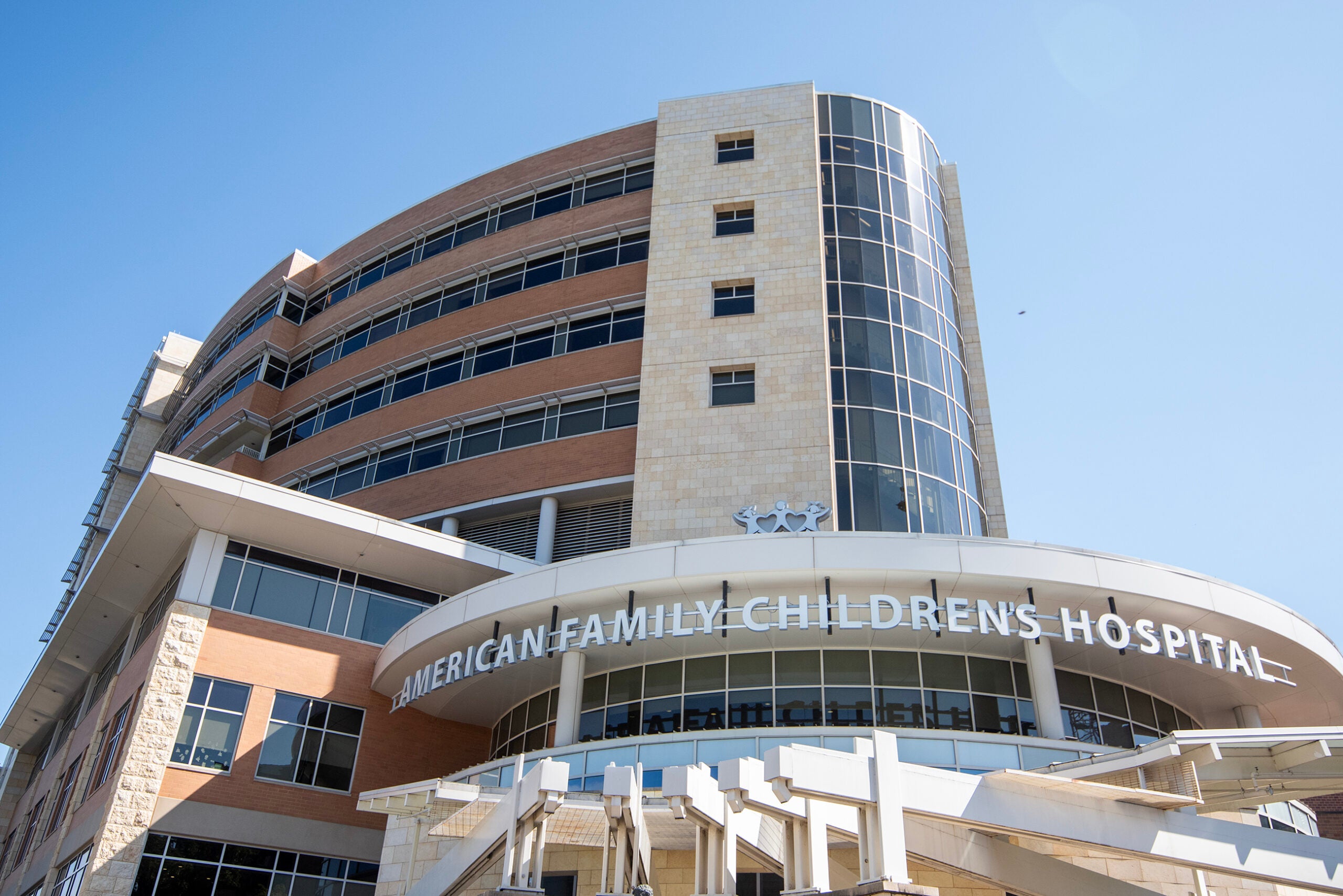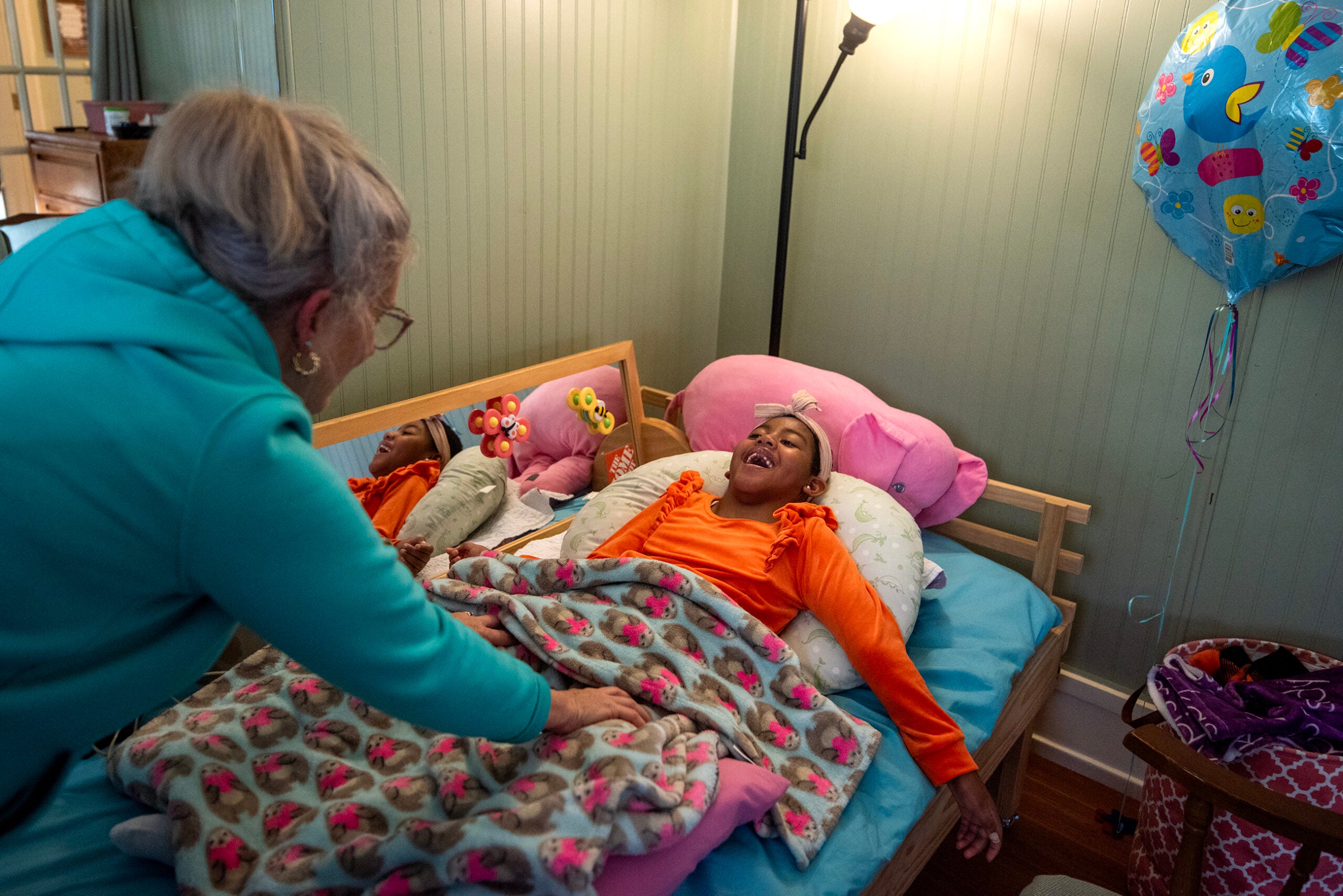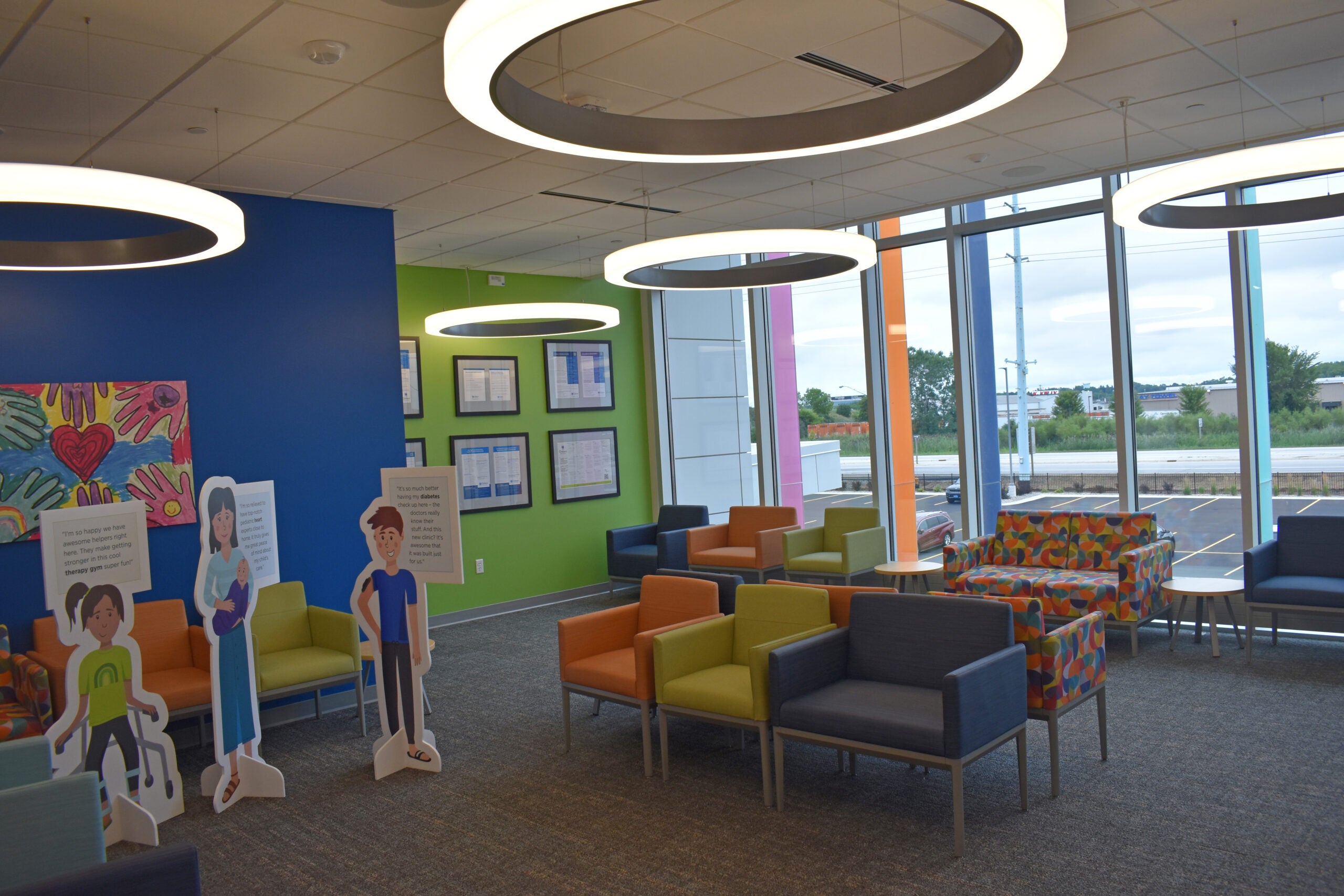Nicole Klug, a foster care case manager in Green Bay, has never been able to shake the memory of the teenage girl tossed from county to county in the wake of her parents’ deaths, or the boy who entered her agency still high after being removed from his drug-ridden home.
What they needed was trauma-informed support that offered a path forward. What they got was a cycle of foster homes, the path forward harder to find by the day.
Klug, who works at Foundations Health & Wholeness, said that despite their obvious need, youths in out-of-home care — the term for court-monitored placement and services for children removed from their homes — are the least likely to gain access to mental and behavioral health treatment. Under Wisconsin’s parental consent laws, foster parents can take youths to a primary care doctor for routine visits and to a dentist for cleanings, but they can’t get them counseling to help them unpack the trauma from their upbringing, home removal and foster placement. Caseworkers like Klug see that as a deterrent to prospects for real behavioral change.
News with a little more humanity
WPR’s “Wisconsin Today” newsletter keeps you connected to the state you love without feeling overwhelmed. No paywall. No agenda. No corporate filter.
A recent report from the American Academy of Pediatrics drove that point home, saying mental and behavioral health represents the largest unmet need for children and teens in foster care.
“Many children have been cared for by a variety of adults, even prior to foster care, and may not have experienced the predictable nurturance necessary for healthy development,” the report reads. “The emotional trauma of removal from all that is familiar and placement in foster care is emotionally traumatizing for all but the youngest infants. This is compounded by the ongoing separation, losses, and uncertainty that are endemic to foster care.”
As of Dec. 31, 2021, the latest comprehensive year of data available from the state Department of Children and Families, or DCF, about 7,000 Wisconsin children have been placed in out-of-home care, roughly 0.5 percent of all children living in the state. More than 80 percent of those children enter out-of-home care with a significant mental health challenge.
Additionally, a little less than 1,500 have documented disabilities, with emotional dysregulation accounting for about 80 percent of all types of determined disabilities — by far the largest condition. Emotional dysregulation is a core trait of ADHD and can involve angry outbursts, anxiety, depression, substance abuse, suicidal thoughts, self-harm and other self-damaging behaviors.
But even if a child enters out-of-home free of a mental health condition, the rupture of removal is its own disorienting condition.
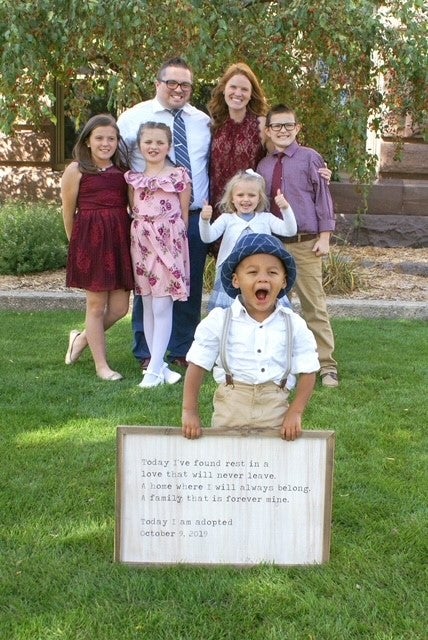
“What’s important to remember is that 80 percent of kids, that’s when they enter care,” said Katie Szerkins, foster care therapist at Foundations. “When you’re removed from your biological parents, that is the most traumatic thing a child can experience, and that alone generates a potential mental health need.”
Szerkins has a license to foster children through Outagamie County and has observed too many times the fallout of not getting young people the care they need. Since 2016, she’s fostered about 50 children and teenagers and adopted two infants, Layla and Myles, giving her six children.
For Szerkins, the problem of mental health access never changes with her foster children, but the pain points differ every time. Scoring a therapy appointment for her kids requires consent from an absentee or incarcerated parent or an overworked county officer, which can take anywhere from a few months to a year — especially if a child is a ward of the state.
‘What they went through couldn’t wait three years’
Jessica Passamoni worked various roles as a caseworker with the idea of becoming a foster parent.
It felt like a natural progression to her. She’d seen enough children wade in and out of the system. She and her husband Shane knew they could provide a safe and healthy home. They had the means, the knowledge and the heart.
Children in the system, she said, “are no different than your own child. They have just experienced things that no kid should ever have to experience.”
The Passamonis, who live in Green Bay, have fostered three children in five years. In September, they adopted their first two foster children, a brother and sister now 12 and 13, who had been with them for more than two years. Recently, a 9-year-old came under their care.
Prior to living with them, the brother and sister lived with an aunt and uncle about two hours away in Langlade County. In their Green Bay home, the kids familiarized themselves with their new living quarters, bonded with the Passamonis, and tried new things like rollerblading, football and chalk-drawing on the sidewalk.
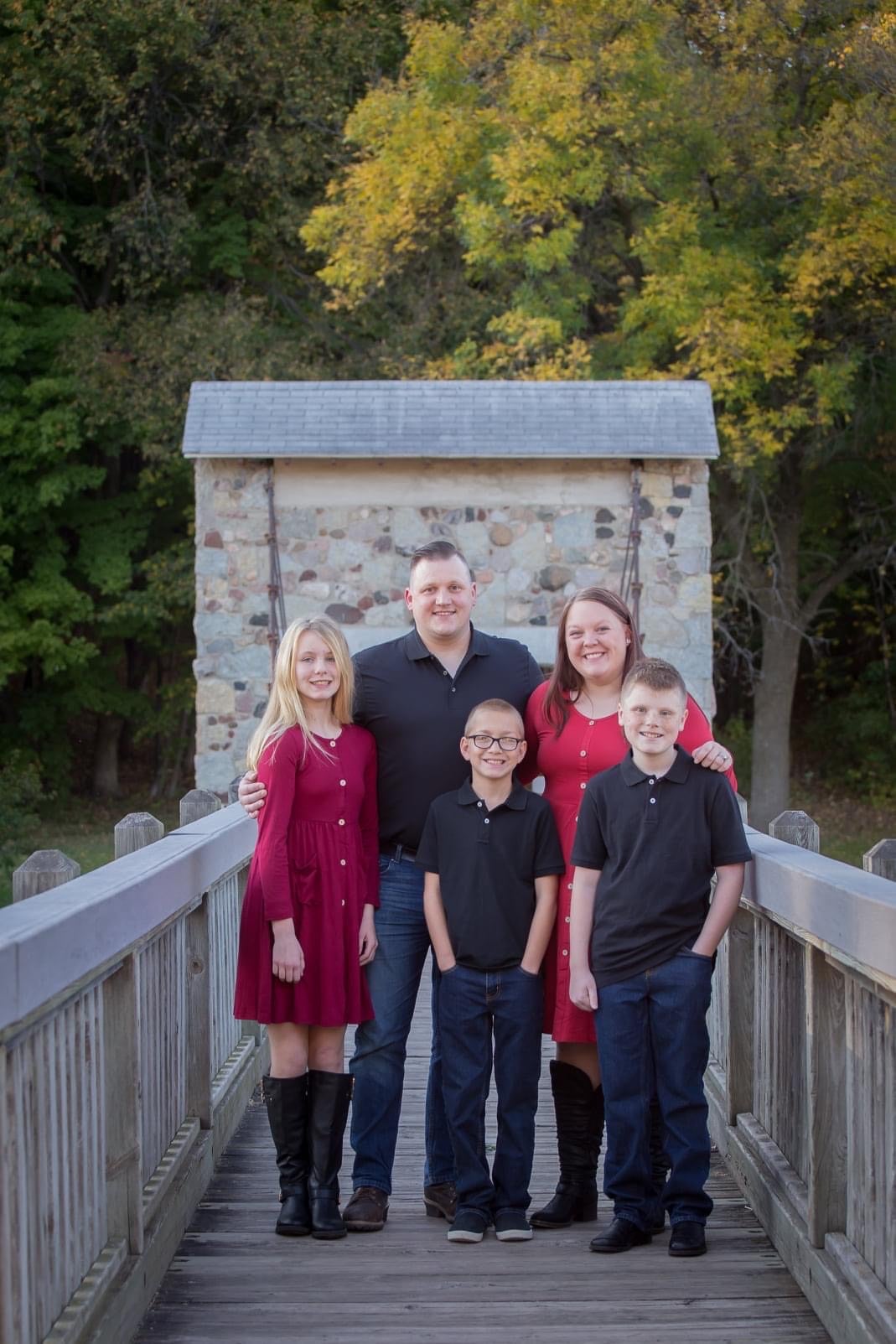
But the children weren’t used to traditional family structures. The girl had been parentalized, Jessica Passamoni said, a phenomenon in which a child is forced to act as a parent in the family, often because of parental neglect or abandonment. She struggled with the idea that she was a young girl in need of care, and also had trouble trusting how the Passamonis took care of her younger brother.
The children needed mental health services, and fast.
Jessica Passamoni started with the county as the point of contact for the children’s parents. At the same time, due to COVID-19 restrictions, the Passamonis had to advocate for the children’s ability to both navigate and benefit from virtual technology. There were certain rules about telehealth not being an appropriate route until the client was at least 13.
“Many would say, ‘Oh, once they turn 13, they can see a provider,’” Jessica Passamoni said. “But what they went through couldn’t wait three years.”
After coordinating with the county, Jessica Passamoni was able to turn a three-year wait into a three-month wait. By July 2020, both children could incorporate telehealth into their weekly schedules, where they learned new ways of coping with their pasts and adjusting to a pleasantly undramatic life with the Passamonis.
“The resiliency that we saw in them — in our youngest’s desire to be a kid and let his sister be a kid — thinking back, it was just remarkable to watch them learn how to be kids again,” Jessica Passamoni said.
A vicious cycle that begins with a flawed system
Under state law, children don’t have a say in their own mental health care, which may make sense in a traditional family system where at least one parent is in the child’s life. Those conditions break down quickly when a child is removed from parental care.
They can only obtain psychological care in emergency situations. In Brown County, for example, youth accounted for 88 percent of those placed in emergency psychiatric beds in 2018.
Further, not enough counselors are equipped to work with this specialty population, Szerkins said.
It’s hard to say how stark the need for mental health services is. There’s about a yearlong waitlist for a psychological evaluation from Brown County mental health services, which doesn’t require the presence of a biological parent or legal guardian. The alternative, however — going down the street to a local hospital or agency for more expedited service — requires not just the consent of a biological parent or legal guardian, but their physical presence in the room during the evaluation, Klug said.
“The biological parents are MIA, have not been in the child’s life for years or they are incarcerated,” Klug said.
Last year, 406 children entered out-of-home care as the result of a parent being incarcerated, according to DCF.
Bridget Wirtz, foster care coordinator for Outagamie County Department of Health and Human Services, said if parents can be found, she has encouraged foster parents to have frank conversations with them about why counseling or mental health treatment is needed.
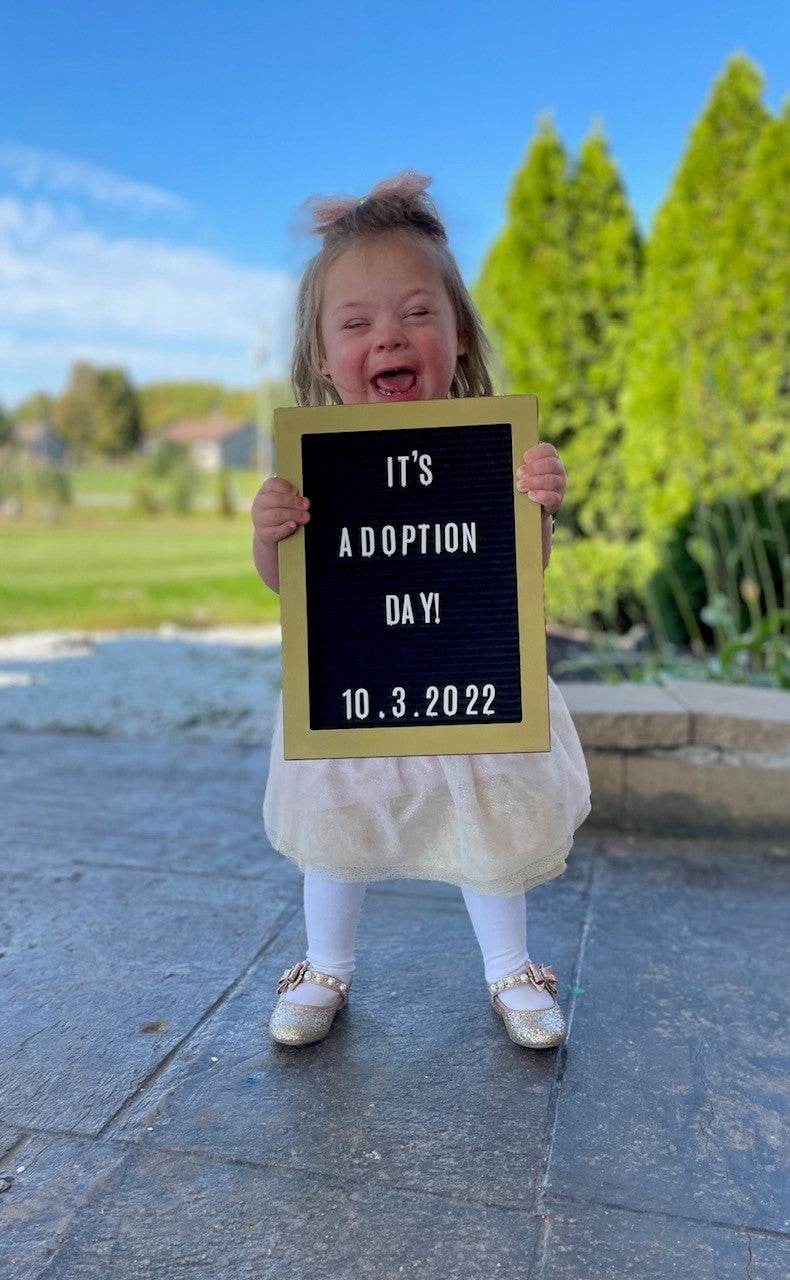
Still, sometimes parents will refuse to give consent, Wirtz said. When that happens, foster parents have to figure out alternatives.
Thinking outside the box became Szerkins’ modus operandi. When she first started taking care of a very thin 6-year-old girl, she was mortified to discover the girl ate out of the garbage. It was what she knew, and no amount of encouraging her to eat from the cupboards and fridge worked. The girl always gravitated to the garbage and when Szerkins attempted to hide the garbage, the girl became anxious, at a loss for how to function.
Therapy for such behavior would have required weeks to months of phone calls and scheduling and waiting, but the child, due to her fragile mental and physical state, needed care immediately. Szerkins bought a fresh garbage pail and filled it with healthy snacks, fruits and vegetables.
“If she’s going to eat from the garbage can, then at least we know it’s not dangerous items being thrown in the garbage can like soup can lids,” Szerkins said. “Gradually, we took away the garbage can from her room … when she knew she was going to have food in our home.”
For Charlotte and Alec, adoption meant a clean slate
When her two children came into the Passamonis’ care, it felt like “they had been there forever,” she said. The children seamlessly merged with the family routine and got along well with the Passamonis’ son, Coltyn.
Two years in, the Passamonis realized they couldn’t let them go. They loved these children and wanted to turn their family of three into a family of five. Much to the children’s delight, the Passamonis started the adoption process. Coltyn happily went from the only child to the middle child.
In the car after a particularly grueling court hearing that involved the presence of the biological parents, the children asked Jessica Passamoni if adoption meant they could change their names.
“I thought they were just talking about their middle and last names,” Jessica Passamoni said. “And they said, ‘No, our first names, too.’”
Jessica Passamoni described an evening where both kids brainstormed names they liked on a whiteboard. They’d star certain names, look them up online, cross out others and imagine themselves enveloped by this new name, one that didn’t call up the ugliness of their past.
After spending her whole life passing through the foster care system with her little brother, the 13-year-old girl legally changed her name to Charlotte. The 12-year-old changed his name to Alec.
Alec picked his name because it was a special family name. Charlotte picked hers because it meant “free.”
“When families think of foster care, they think of this big scary child in their home, worries that they’re going to disrupt everything that they have going on. And that could not be further from the truth,” Jessica Passamoni said.
“It’s so important that we take a step back and say, ‘This kid might have behaviors,’ or, ‘This kid might experience A, B, C or D,’” she said. “But let’s think about where that came from and help that child through that.”
This story is part of the NEW (Northeast Wisconsin) News Lab’s fourth series, “Families Matter,” covering issues important to families in the region. The lab is a local news collaboration in northeast Wisconsin made up of six news organizations: the Green Bay Press-Gazette, Appleton Post-Crescent, FoxValley365, The Press Times, Wisconsin Public Radio and Wisconsin Watch. The University of Wisconsin-Green Bay’s Journalism Department is an educational partner. Microsoft is providing financial support to the Greater Green Bay Community Foundation and Community Foundation for the Fox Valley Region to fund the initiative. The mission of the lab is to “collaborate to identify and fill information gaps to help residents explore ways to improve their communities and lives — and strengthen democracy.”
Natalie Eilbert covers mental health issues for USA TODAY NETWORK-Wisconsin. She welcomes story tips and feedback. You can reach her at neilbert@gannett.com or view her Twitter profile at @natalie_eilbert. If you or someone you know is dealing with suicidal thoughts, call the National Suicide Prevention Lifeline at 988 or text “Hopeline” to the National Crisis Text Line at 741-741.

